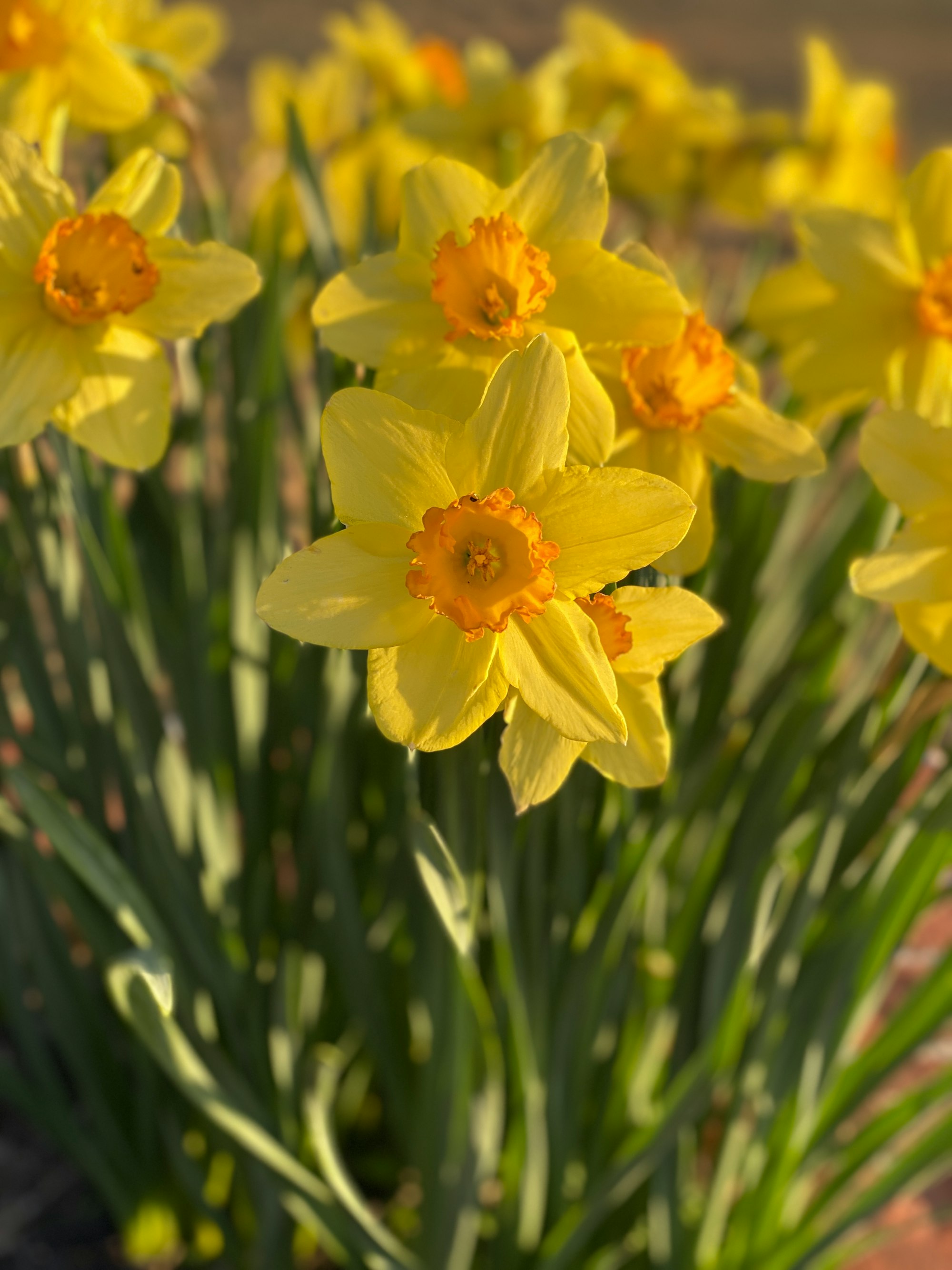Kyla Houbolt, "The Yellow Submarine"
Kyla Houbolt's "The Yellow Submarine" presents us with yellow everywhere.

Kyla Houbolt's "The Yellow Submarine" presents us with yellow everywhere. You're surrounded by "daffodils" and "Stella D'Oro." You wonder if this joyous ocean has a point of origin. Maybe a yellow submarine in the backyard. Maybe color is a cause.
"The Yellow Submarine" really exists. It is in your backyard, hidden under the daffodils and, later, the Stella D'Oro. You will never see it. (The bird does not see the air nor the fish the sea.) Our periscopes have long been broken. --Kyla Houbolt
You scoff. Why must color be a cause? Our imaginations abound with yellow flowers and the feelings that follow. Isn't that good enough? There is no need to unearth a metaphysical logic from "The Yellow Submarine." Let poetic license be!
Unfortunately for us, I'm reading Heidegger. I have too many thoughts about whether exploring the concept of existence can yield meaning. Relatedly, the prospect of color alone as a cause tantalizes.
I have memories of a grade school talent show. A beaten stage with dull lighting stood in front of me. I sat in a chair used for the cafeteria and assemblies, hating the smell and look of the place. A bunch of kids my age sang "we all live in a yellow submarine," over and over, with enthusiasm and a large cardboard cutout of said submarine. It was an impressive prop. I was pleasantly surprised.
I believe this is how brightness works. Brightness is not merely a color which acts as light. Nor only an uplifting sound. It depends on surprise, on the unexpected displacement of drabness or gloom.
Houbolt says we'll never see the yellow submarine in the backyard. We won't see the presumed cause of the daffodils and the Stella D'Oro. Her lines hint that you can neither pinpoint the exact cause of joy, nor the precise burden lifted. As she says, "The bird does not / see the air nor the fish / the sea." Again, you scoff. When you had more money, you felt relief. When you were loved, you celebrated that love. Of course we know the causes of our joys and pains!
No. We really don't. Think about parents who are crazy about their younger kids but can't deal with those who are older. Their neglect correlates strongly with complexity. Pre-teens and teens are tough. Their social environments are notoriously hard to navigate. So it is tempting to tie feelings of love and joy to the simplest things. But anyone with a brain knows that isn't sustainable love or joy. If you want something real and lasting, you need radical flexibility. An exact cause of joy is inadmissible. You wouldn't want it if you could have it.
Color, then, is a cause because of its generality. It is a field like the air or sea where we happen. It is a precondition which spills over into being sufficient. But if you try to work backwards to articulate the meaning of it all, you find next to nothing.
Leo Strauss has a thought worth considering at this juncture. Suppose you want to articulate the whole. The meaning of life, the existence of God, whether the universe is entirely fire or water, how dimensional realities relate, how language and the world link. You want to speak the whole of being. If you try to do this, you're trying to speak what is beyond being. It's a Neoplatonic logic--a universal creator must be outside space-time, observing from what is inconceivable to us-- which can be used to reflect on how the issue of the supernatural will always be with us.
When we arrive again at the backyard and its yellow flowers, the question is more immediate. Houbolt says "Our / periscopes have long / been broken." How do we see beyond the joy we feel? As a practical matter, we want to remember the good moments and let them blossom into better ones. It would help to locate the yellow submarine, to have an idea of the good that is certain knowledge. We could just imagine the thing and immediately be at peace and know what to do. The funny thing is that yellow submarine really exists, but not only is it beyond our grasp, but it is not going to say anything remotely helpful. We get bits of wisdom, things that we want to have meaning for those beyond us, and we believe they speak to a greater cause, if not the greatest cause. And this belief isn't necessarily wrong! It just doesn't work in any way resembling a system.
The more I think about how knowledge works, the more obviously personal it is.
